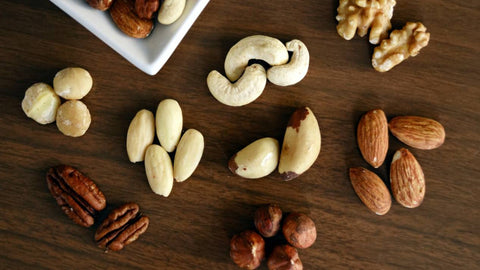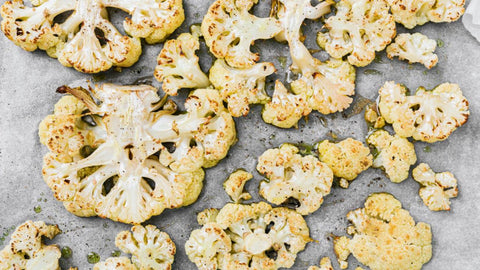Around 1.5 million Aussies are currently employed in shift work. Shift work can have a huge impact on your lifestyle including your sleep, whether you exercise or not, your alcohol consumption, your mood and mental health, the way you eat including meal times and the types of foods you choose to eat.
Simply put our bodies are designed to be awake and eat through the day, and to sleep and fast through the night. When our internal body clock is thrown out of whack with shift work it has a profound impact on our health and waistline. Research unfortunately shows that shift workers are more likely to be overweight and are at an increased risk of developing lifestyle diseases such as type two diabetes and heart disease. So what are some realistic steps you can take with your nutrition if you are a shiftworker to help optimise your health?
- Stick to a regular eating pattern
Try your best to stick to the same number of meals and snacks each day, regardless of your shift type. Eating irregularly, or minimal amounts one day and huge amounts the next is not going to do your weight or waistline any favours. Having a consistent number of meals and snacks each day increases the likelihood of consuming the same amount of energy (calories) each day, which keeps with maintaining a healthy weight. Aim to eat a meal around every four to six hours and a small snack in between if you are hungry when you’re awake rather than starving to the point of overeating! If possible try and stick to a 12hr eating window
- Choose smart snacks
 If you need to snack late at night, say between the hours of 8pm-4am opt for protein rich snacks as opposed to those that are high in refined carbohydrate and/or sugar. This is because research shows our body’s become less efficient at balancing our blood sugars and using carbohydrates for energy in the back end of the day. Some examples of some protein-rich snacks include;
If you need to snack late at night, say between the hours of 8pm-4am opt for protein rich snacks as opposed to those that are high in refined carbohydrate and/or sugar. This is because research shows our body’s become less efficient at balancing our blood sugars and using carbohydrates for energy in the back end of the day. Some examples of some protein-rich snacks include;
- Cottage cheese & seeded crackers or paleo style crackers
- Roasted fava beans or chickpeas
- Boiled eggs
- High protein yoghurt e.g. yopro
- Nut & seed mix
- Activate Foods Breakfast Frittata
- Activate Foods Paleo Banana Bread
- Protein shake
- High protein milk e.g. Complete dairy co milk & 1 tsp hot chocolate powder
- Berries & cottage cheese
- Tin of tuna or salmon
- Low carb wrap with avocado, hommus, egg or nut spread
- High protein low carb bread topped with a spread
Other healthy snacks during the day include fruit, Activate Foods Bliss Balls, unsalted nuts, apple slices topped with nut butter, good quality seeded crackers & avocado or hommus, veggie sticks and cottage cheese, yoghurt, low sugar muesli bars, soup, sourdough or good quality seeded bread with a spread or air popped popcorn .
- Prioritise protein at your night time meal
 Protein is fantastic at keeping us full and satisfied and as mentioned above a high carb meal at night is not ideal for our blood sugars when we are shift workers. Fill up ¼ to ⅓ of your plate with chicken, lean meat, fish or seafood, tofu, tempeh, egg or legumes. Fill up ½ your plate with salad or non-starchy vegetables (everything aside from potato, sweet potato and corn) and if you’d like a small portion of high-fibre and/or lower GI carbohydrate like sweet potato, brown or basmati rice, wholemeal or pulse pasta, corn, quinoa or pearl cous cous. Activate foods has a great range or low carb meals which would be perfect for the evening meal especially if you’re eating late at night
Protein is fantastic at keeping us full and satisfied and as mentioned above a high carb meal at night is not ideal for our blood sugars when we are shift workers. Fill up ¼ to ⅓ of your plate with chicken, lean meat, fish or seafood, tofu, tempeh, egg or legumes. Fill up ½ your plate with salad or non-starchy vegetables (everything aside from potato, sweet potato and corn) and if you’d like a small portion of high-fibre and/or lower GI carbohydrate like sweet potato, brown or basmati rice, wholemeal or pulse pasta, corn, quinoa or pearl cous cous. Activate foods has a great range or low carb meals which would be perfect for the evening meal especially if you’re eating late at night
- Try to aim for a small fasting window between 10pm-4am
Our bodies are not designed to consume calories at this time. Research shows there’s health benefits to eating meals earlier in the day compared to late at night when it comes to regulating your blood sugar levels and levels of fat in the body. A 2015 study found that participants whose sleep was shortened and who received a meal during the night had reduced insulin sensitivity (which you want to be high), and an increased insulin response to carbohydrate
- Rethink your drink
Many people believe that reaching for high sugar foods such as soft drinks and energy drinks will help boost their energy levels and help them focus when they are fatigued, however, research has shown shift workers perform worse on mental tasks when they reach for these high sugar foods and drinks. Choose beverages low in added sugars such as coffee, tea, kombucha, fruit infused mineral waters, veggie juices, diluted 100% fruit juice (50% water, 50% natural juice) or water flavoured with fruit.
If you or someone you know needs help with what they should eat during shift work, get in touch with Eatsense to organise a consult with a dietitian.


